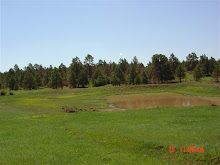Fight Over Drilling SW Colo. Mountains in Court
Okay, I know I am being lazy today, but here's another article, this one about drilling in the Southwest mountains of Colorado.
Fight over drilling in SW Colorado mountains heads to federal court
By JUDITH KOHLER Associated Press Writer
DENVER December 31, 2009 (AP) The Associated Press
Opponents of a plan to drill dozens of natural gas wells in the southwest Colorado mountains, including roadless forest land, accused federal officials Thursday of playing a shell game with public lands.
Attorneys representing the San Juan Citizens Alliance and four other groups argued in federal court that agencies didn't follow the forest management plan when they approved a project authorizing about 140 wells in the San Juan National Forest in 2007.
Of special interest are the HD Mountains, which include roadless areas. The mountains make up roughly 45,000 acres of the 125,000-acre project area.
Industry officials note that there are already several wells in the area. Environmentalists, though, say most of the drilling has been on the western flank of the mountains and beyond. They say the HD Mountains are one of the last pockets of undisturbed backcountry in western Colorado.
Earthjustice attorney Michael Freeman told U.S. District Judge Richard Matsch that federal officials played a shell game when they said measures to reduce harmful impacts on air and water quality and wildlife habitat would be reviewed later, when individual wells were approved.
"Those commitments have been routinely ignored," he added. More>>>






